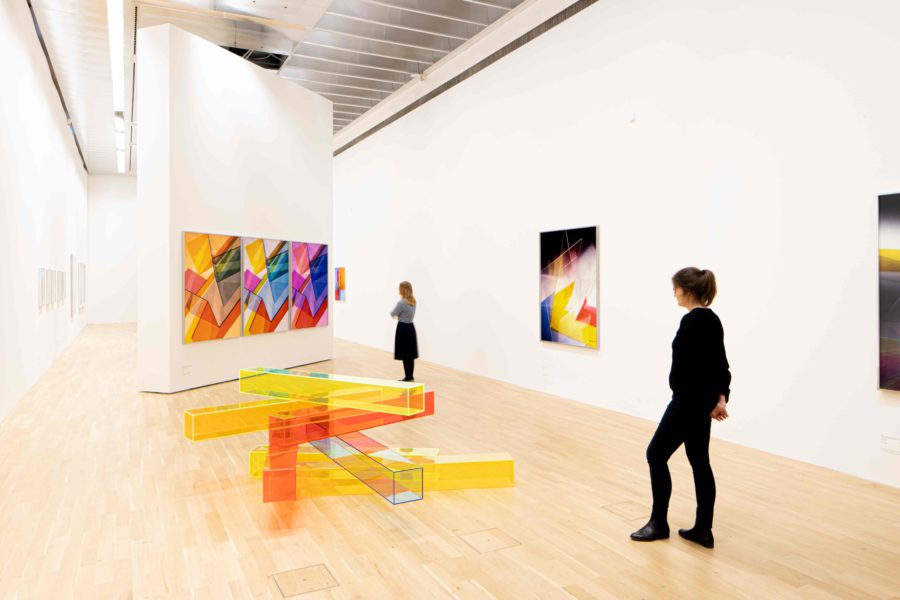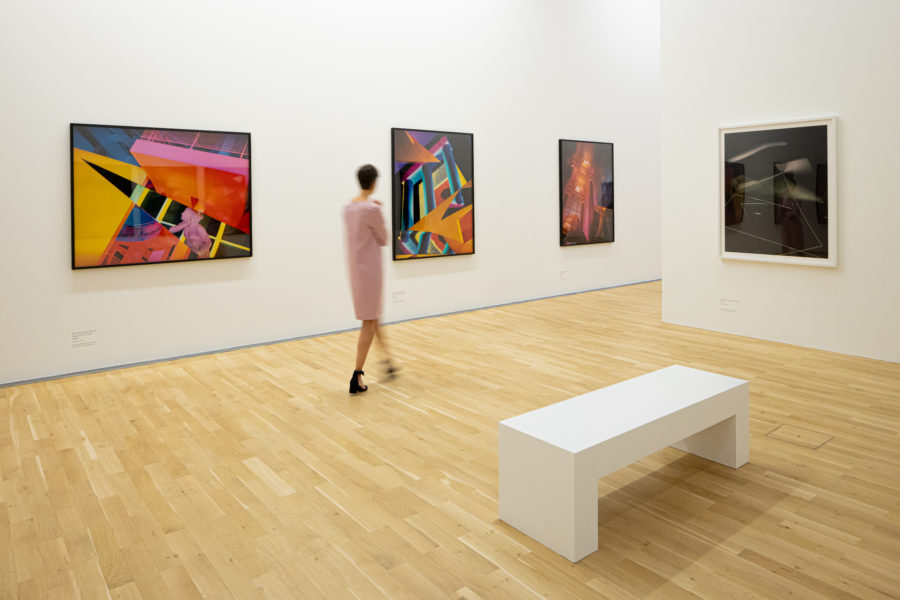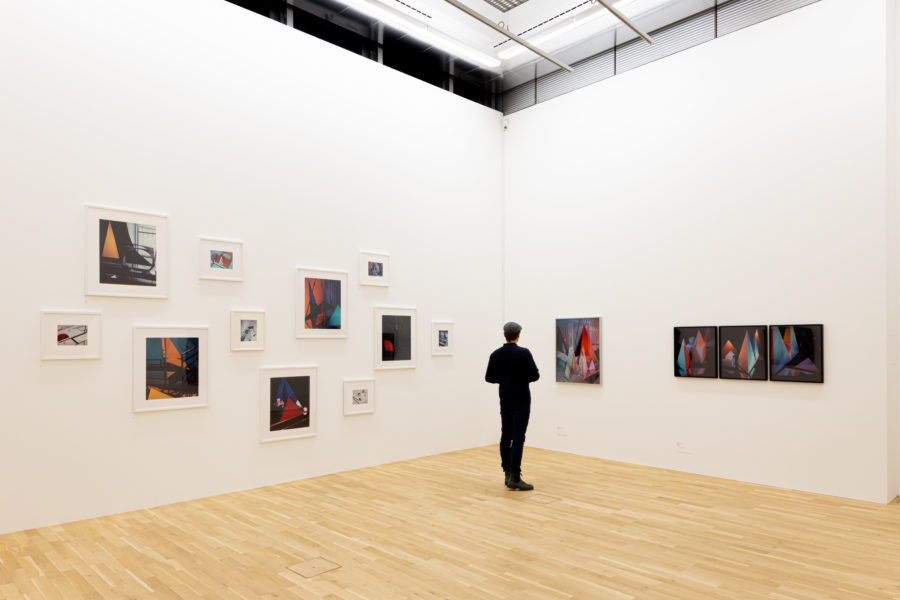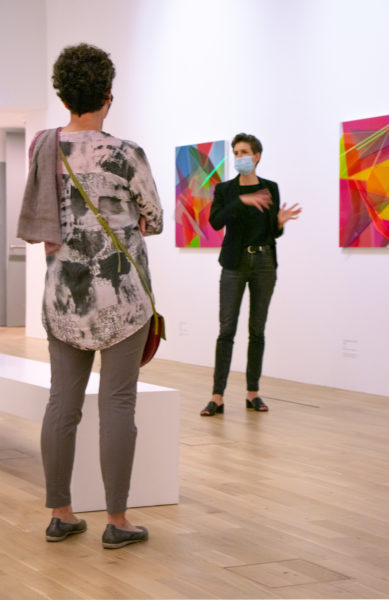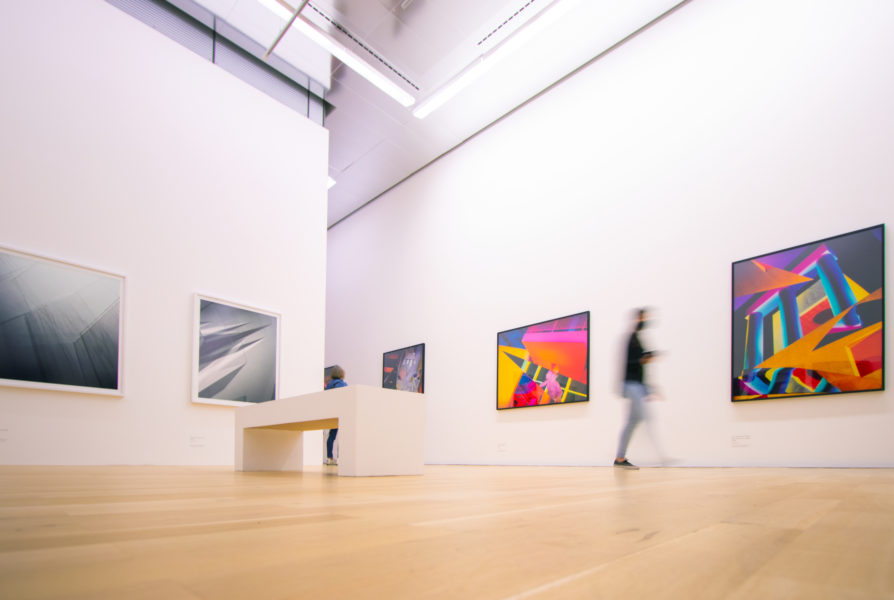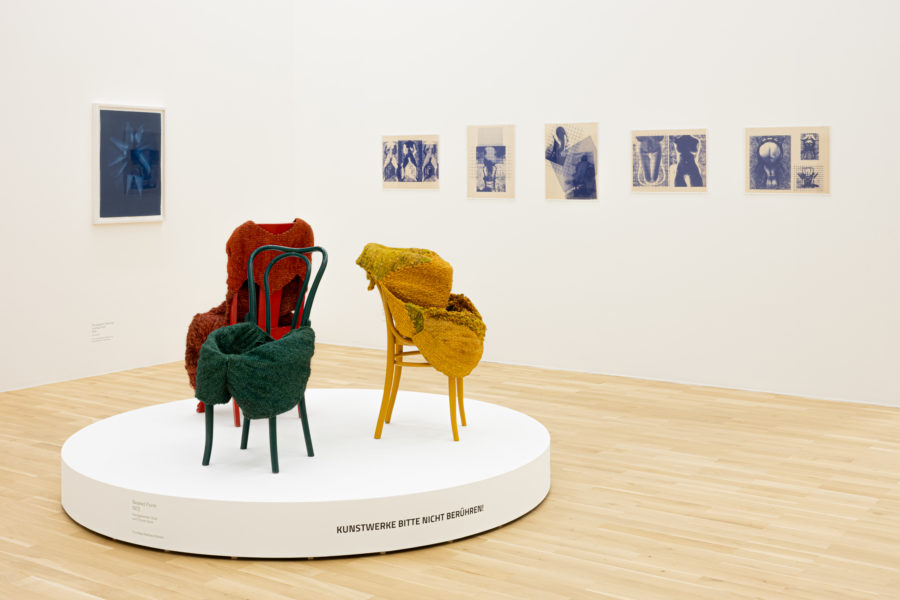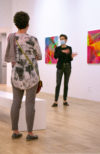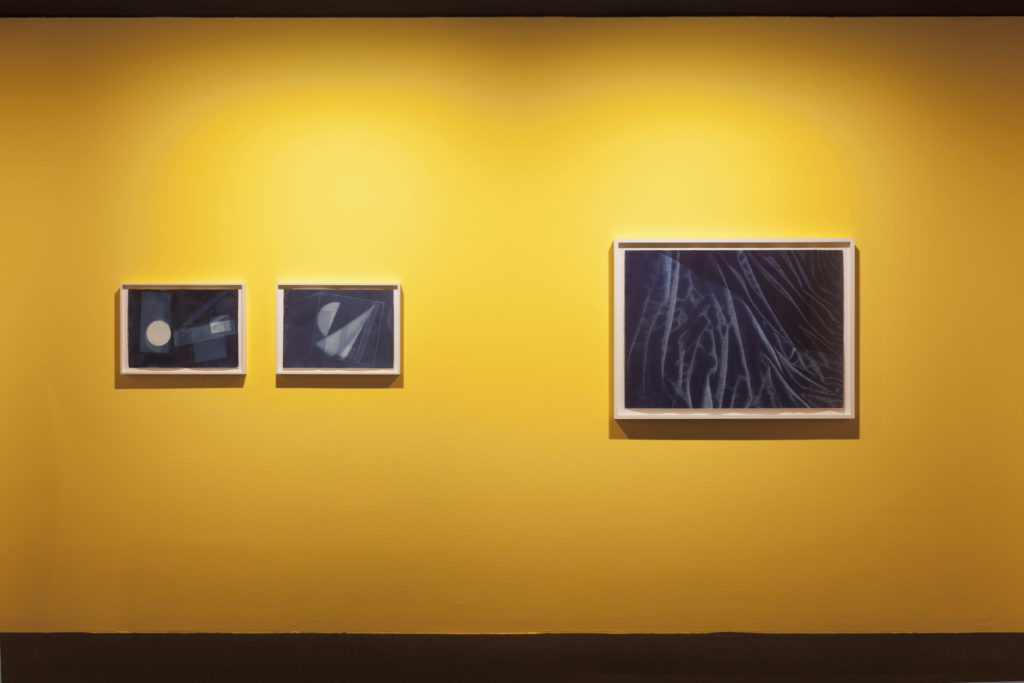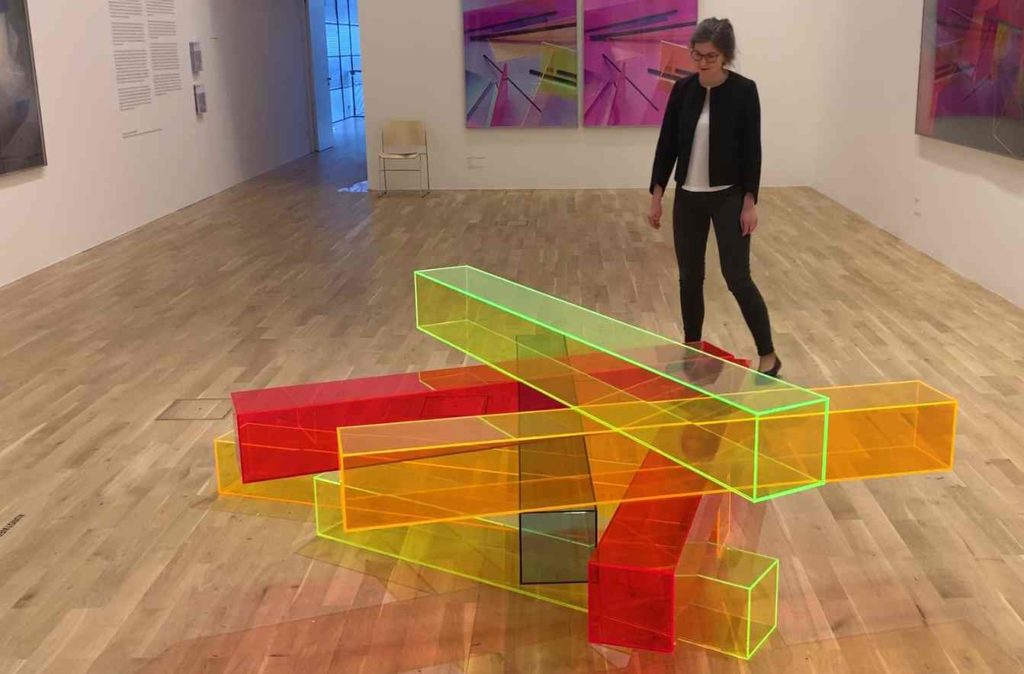Barbara Kasten
Works
Installationviews
Infos
Over the past four decades, the American artist Barbara Kasten (b. 1936, lives and works in Chicago) has created an impressive body of work, at the center of which are her seemingly abstract photographs. With the exhibition Barbara Kasten. Works, the Kunstmuseum Wolfsburg presents a comprehensive overview of her oeuvre for the first time in Europe—from her early sculptures and photograms via her constructivist photographs to her most recent video installations.
After Barbara Kasten had already dealt with ideas of the Bauhaus, textile sculptures, and alternative photographic techniques in the 1960s, her central concern is now the transference of the medium of photography into a painterly concept. For her, the most important media are light and shadow. Within her series of Constructs, created between 1979 and 1986, everyday materials are first staged in a black-and-white aesthetic and later illuminated with color, thus relieving them of their prosaic character. Parallel to this, she began her analog photo series of Architectural Sites (1984–87). For real existing buildings such as the World Financial Center or the Whitney Museum of American Art, she used photography to build a platform of sorts on site, in order to stage the buildings in surreal light. The results are large-format, almost abstract, intensely colored photographs in which illusion and reality merge with one another. In the last few years, she has also created video works with the intention of enhancing spatial illusion by incorporating real objects.
Barbara Kasten’s oeuvre represents a unique position in the international artworld. In the age of Photoshop and the seemingly unlimited possibilities of digital image manipulation, her works stand for an avant-garde position of the analog.
The exhibition is accompanied by a publication in English and German (Verlag der Buchhandlung Walther König; design: Ta-Trung, Berlin) with texts by Andreas Beitin, Carol S. Eliel, Elena Engelbrechter, Anette Hüsch, Alex Klein, and Magdalena Kröner, as well as an interview with Barbara Kasten.
Curator
Andreas Beitin
Curatorial assistance
Elena Engelbrechter
Birte Hinrichsen


